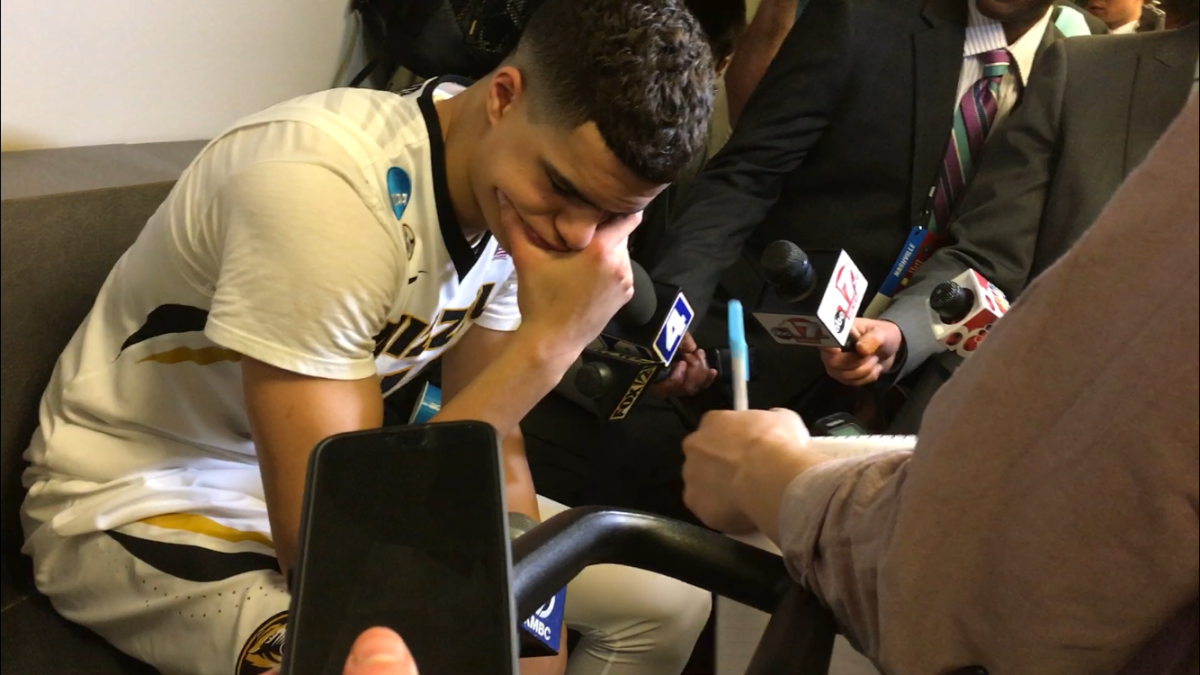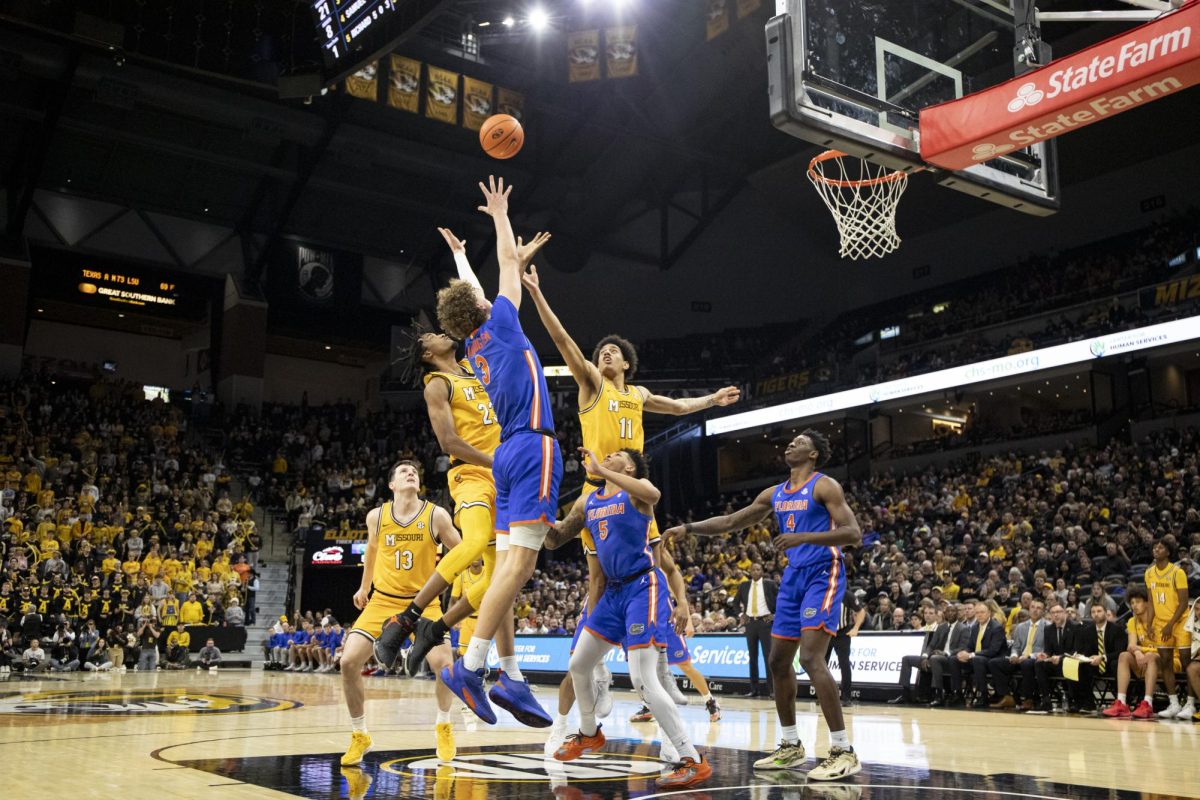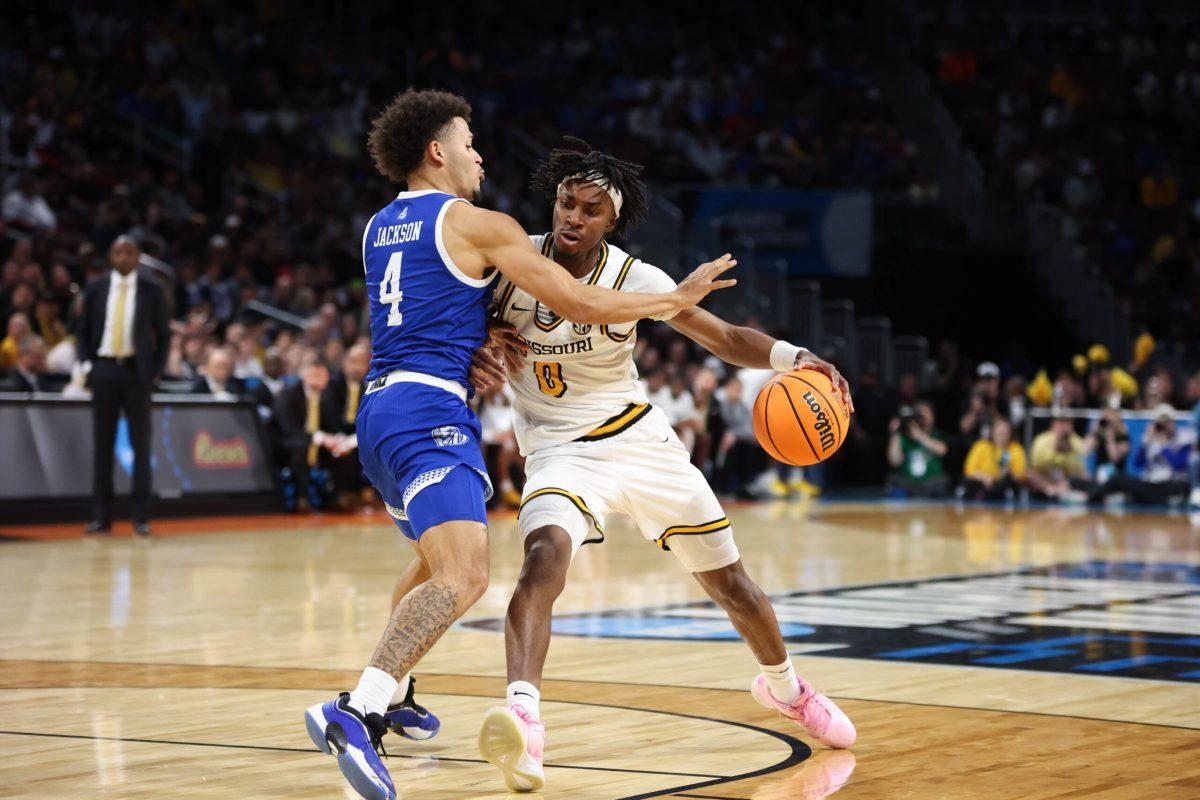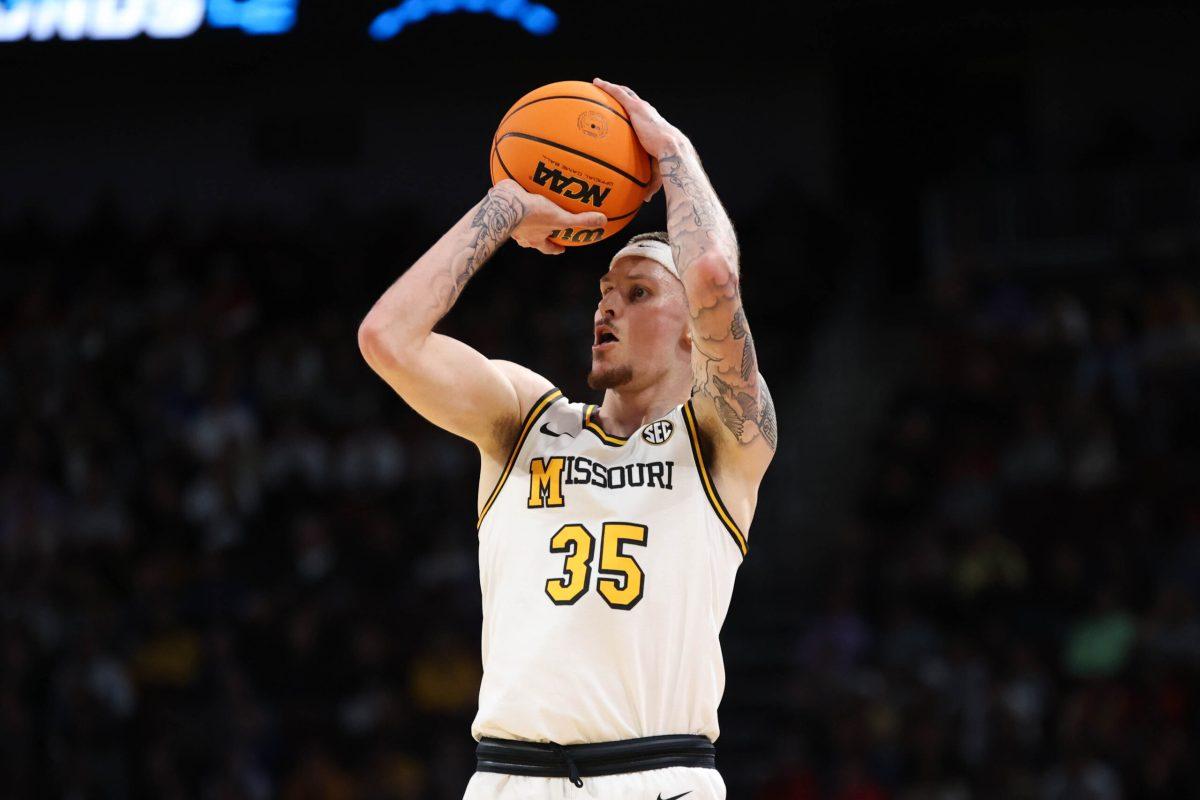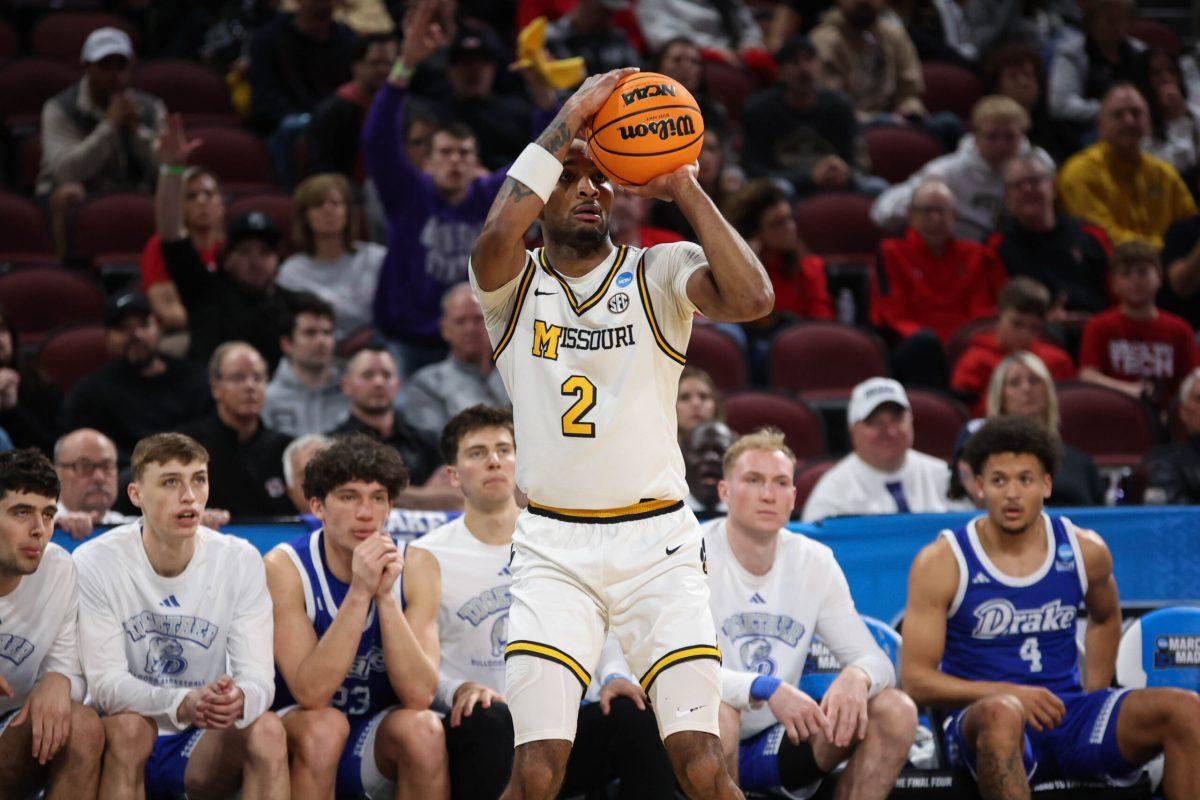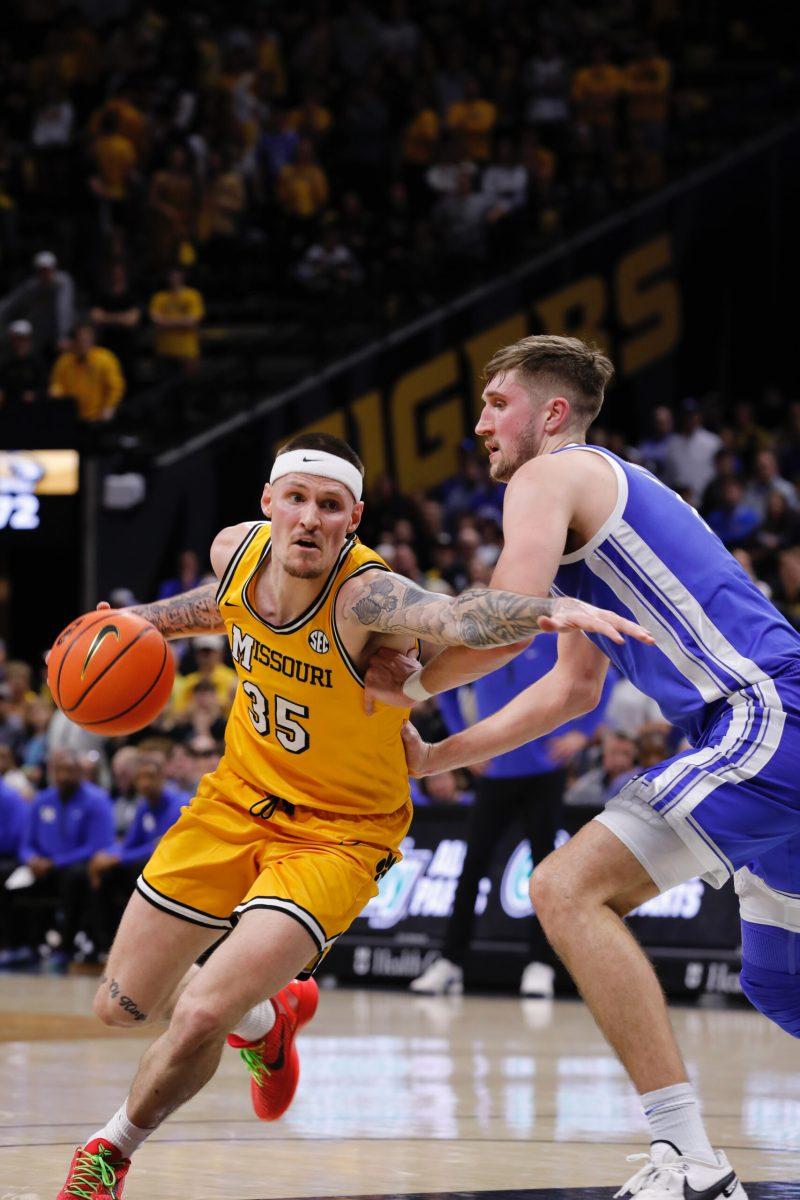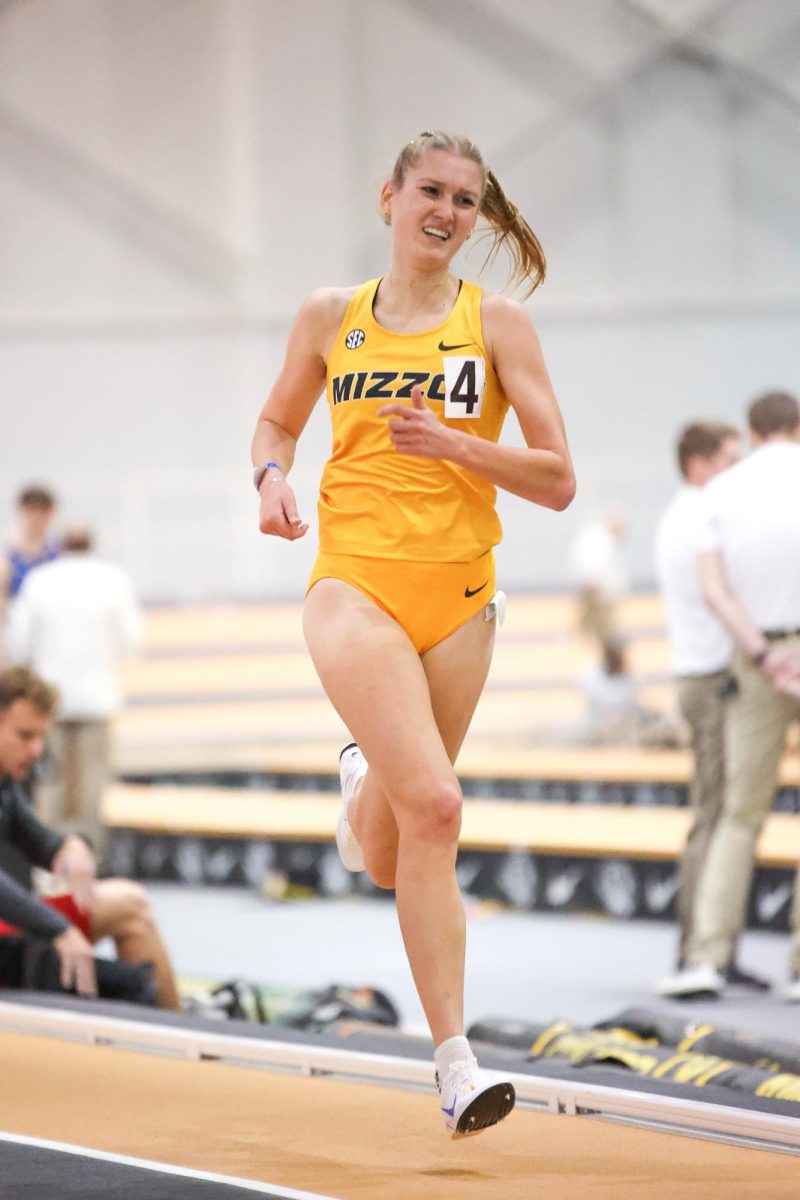##What happened?
When it was all said and done, in the depths of Nashville’s Bridgestone Arena in the wee hours of a bittersweet Friday night, Cuonzo Martin and the Missouri men’s basketball team could only just begin to sort through the rollercoaster ride that had finally reached its conclusion against Florida State that evening.
For a program that had won just eight games the year before and hadn’t seen NCAA Tournament competition since 2013, mere presence in the field of 68 teams was an accomplishment to be celebrated. Still, considering their ambitious 2017 offseason and overachieving Southeastern Conference campaign, the Tigers expected more than a first-round exit.
The feelings, without a doubt, were conflicting.
At the center of this season’s up-and-down narrative was one trait: depth.
The roster was never consistent at any point as transfers, injuries and one unseemly Title IX investigation followed the Tigers throughout the season.
On opening night against Iowa State, Missouri was 11 men deep, excluding walk-ons and redshirts. Then Michael Porter Jr., the No. 1 freshman prospect in the country, was sidelined two minutes into the season. It was hip discomfort at the time; it was a supposed season-ending back surgery two weeks later.
The snowball kept rolling from there, picking up redshirt freshman and expected future star C.J. Roberts on its way down. He transferred to Texas Tech, and not long after, freshman Blake Harris followed the transfer trend by leaving for North Carolina State. Harris had been slotted in at starting point guard for eight straight games prior to the surprising decision.
By conference play, Martin had to be sweating about his guard options, and then, suddenly, another one was gone. Junior Terrence Phillips was suspended indefinitely after a Title IX investigation was opened against him. Soon after, he was no longer on the team.
Even the Tiger walk-ons weren’t safe, as fan favorite Adam Wolf’s season ended due to a knee injury suffered during practice. Then, with Porter Jr.’s potential return looming in early March, junior Cullen VanLeer, a 13-game starter who had become a more relevant role player than anticipated due to the already diminished roster, tore his ACL on senior night at Mizzou Arena against Arkansas.
Cue yet another adjustment.
That was Brett Rau, another walk-on who was shoved into nine minutes against Georgia in a first-round SEC Tournament loss.
Then came maybe Missouri’s most detrimental loss of the year, and Rau was forced into 13 more minutes of playing time on the team’s biggest stage in five years.
Senior Jordan Barnett’s arrest on suspicion of a DWI fewer than 48 hours before the selection show was a devastating blow. The experienced small forward had started all 32 games for Missouri and was averaging 34 minutes per game. It was peak Murphy’s Law timing for the Tigers.
Their answer? Porter Jr., finally back from the dead and ready to carry his team to a magical March run on his transcendently talented shoulders.
That didn’t pan out. Porter Jr. shot 9 for 29 over his two games back. He didn’t appear in a regular-season game beforehand, causing him to be visibly gassed in his extended minutes in both postseason contests. But like his teammate junior Jordan Geist, who dealt with flu-like symptoms ahead of the SEC Tournament and was repeatedly battered against Florida State, Porter Jr. had to play through those problems. Martin had no other choice.
“We lost both games I played,” Porter Jr. said after the season-ending defeat, “so I don’t feel like I helped the team.”
That was why he came back — to help the team — but battling his own body as the recovery process was clearly still in progress, Porter Jr. was never truly back.
Instead, the team had to adjust to altered roles with minimal preparation, and the missing chemistry was evident.
“It was more so complicated for our [other] players,” Martin admitted after it was all over. “We didn’t get into a flow like we needed to.”
That’s the reason it’s all over so soon: Throughout the four-month season, Missouri was dealing too much with its own personnel losses to establish a lasting flow with the players it had. It’s also why those 20 wins and an NCAA Tournament berth are so impressive in the first place; not many teams could’ve had that kind of success considering the circumstances.
But when Rau played one more minute than steady starting center Jeremiah Tilmon in that tournament game, it’s go figure why Missouri didn’t go further. It can only hope that it can maintain the positives and take the next step in the future based on the lessons from this roller coaster season.
##What’s next?
With Porter Jr. more than likely gone for the NBA draft and his brother Jontay potentially right behind him, Missouri will have to look for more star power next year to replace if one or both of the Porter brothers leave school.
Production-wise, though, no one will be more difficult to replace than graduate transfer Kassius Robertson and Barnett. Robertson was Missouri’s leading scorer, averaging 36 minutes per game and 16.3 points per game. Robertson did an admirable job at point guard, a position he’d never played in college prior to this season, but it was evident he was out of his element in the role at times.
While Missouri will have to look elsewhere to replace Robertson’s lead-by-example presence on and off the court, the team will have a few options to replace Robertson at the point guard position.
One is Geist, who will be a senior next season. He will be asked to provide more veteran leadership for a team that will be even younger next season. But while he led the team with 2.9 assists per game, he’s showed he’s more comfortable coming off the bench in a spark plug type role than as a starter. Missouri would be better off with him as a rotational player than being the one to bear the burden of the majority of the team’s minutes at the point guard position next season.
Since Geist is the only player returning who played significant minutes at point guard, the team will have to turn to class of 2018 signee Xavier Pinson. Pinson, a 6-foot-2, 170-pound three-star point guard out of Simeon in Chicago, is undersized and will have to put on weight to be a playmaker at Missouri. But his court vision and passing ability is already there, so if he can put on some muscle over the summer, he should be able to make an immediate impact.
However, Pinson will take a backseat if Missouri can land an even more coveted recruit — Webster Groves, Missouri’s, Courtney Ramey. Ramey originally committed to Louisville before Rick Pitino was fired amidst an FBI scandal and is now one of the nation’s top remaining unsigned players in the class of 2018.
Missouri has turned up the pressure in recent weeks to land Ramey, who made an unofficial visit to Columbia for Missouri’s March 3 game against Arkansas. Martin visited Ramey at his state championship game on Saturday and has seen three of the senior’s last four games.
If Missouri was able to land Ramey, he would be penciled in as the Tigers’ starting point guard next season and would make an already solid 2018 recruiting class all the more formidable.
At shooting guard, Missouri should get an upgrade from the arrival of four-star recruit Torrence Watson. Watson is a good friend of Ramey’s and should help in the recruiting efforts to bring Ramey to Mizzou.
Watson is the 20th best shooting guard prospect in the country according to 247sports.com and has had a senior season nothing short of ridiculous at Whitfield School in St. Louis, averaging a city-best 31.9 points per game. At 6-foot-5, 175 pounds, like Pinson, he will also have to put on weight to succeed in college. But he’s showed himself to be a capable scorer, something Missouri will need to replace the production of Barnett and Robertson.
Missouri has a limited number of players on its roster than can fill in for Barnett next season in the starting rotation. While his outside shooting will be difficult to replace, Missouri could end up with an even more athletic stretch-4 type to replace his production: Belleville, Illinois, product E.J. Liddell.
Liddell is already a beast of a player. At 6-foot-7, 220 pounds, he’s got the size to compete at the next level immediately. His commitment is considered open, but he’s set to graduate in the class of 2019, so Missouri will have to wait a while to hear his decision.
With Tilmon coming back at the fifth spot in the rotation and with the potential for Porter to return as well, Missouri could end up having an even more formidable starting five next season than it did when the team began this season with Michael Porter Jr. in the starting lineup on Nov. 10. If Ramey chooses to come to Mizzou and Watson is as good as advertised, Missouri could have a team well positioned to take the next step in Martin’s quest to “build a program” in Columbia.
_Edited by Kaitlyn Hoevelmann | [email protected]_


